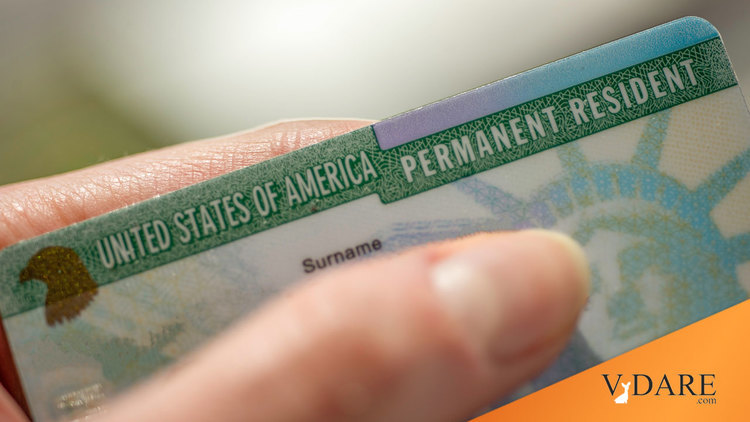
Norm Matloff On The New Green Card Bill
08/04/2008
From Norm Matloff’s H-1B/L-1/offshoring e-newsletter.
Norm Matloff writes:
H.R. 5882 appears to be on its way. The bill would expand the number of employment-based green cards by a "recapture" process. This would first make available unused visas going all the way back to 1992, and would continue to do the same thing in the future, under a system in which visas unused in one year would be available for use in the next year. The same policy would hold for family-based immigration.The bill’s premise — that "the best and the brightest" foreign workers are being lost as they tire of waiting for a green card — is bogus, as I've explained, for instance here.
A summary is that of the three main employment-based (EB) categories, the two that are designated for "the best and the brightest" do not have long waits; the only category with long waits is the one for ordinary people doing ordinary work. [After Flurry Of GOP Amendments, Judiciary Subpanel Moves Visa Measure, By David Hess, National Journal.com, Fri. Aug 1, 2008]
H.R. 5882 differs from other recent proposals, including one by Lofgren, to expand the EB green card program, which would essentially grant an automatic green card to any foreign graduate of a tech program at a U.S. university. These proposals would create their own demand, and by being targeted on new graduates, would apply mainly to the young, and thus greatly exacerbate the already-existing problem of employers hiring young foreign workers instead of older (age 35+) Americans.
Though differing in mechanism, H.R. 5882 would have similar effects. If some workers do tire of waiting and leave, that’s good. Most of these foreign workers are young too, so each one that leaves lightens the age problem described above. The same is true for those in line whose employers go out of business, thus losing their EB green card application. Yes, it is disappointing to those workers, but they are not needed and had been given no guarantee of being able to stay. (The industry lobbyists' argument that they will then go and "work for our foreign competitors, taking knowledge gained from U.S. companies" is absurd, since these same companies operate R&D centers abroad.)
In other words, the fact that H.R. 5882 does not contain an H-1B increase does not mean that the bill is harmless. In addition, as mentioned, its premise is invalid. Yet, as the enclosed article reports, it has now passed its first committee hurdle.
